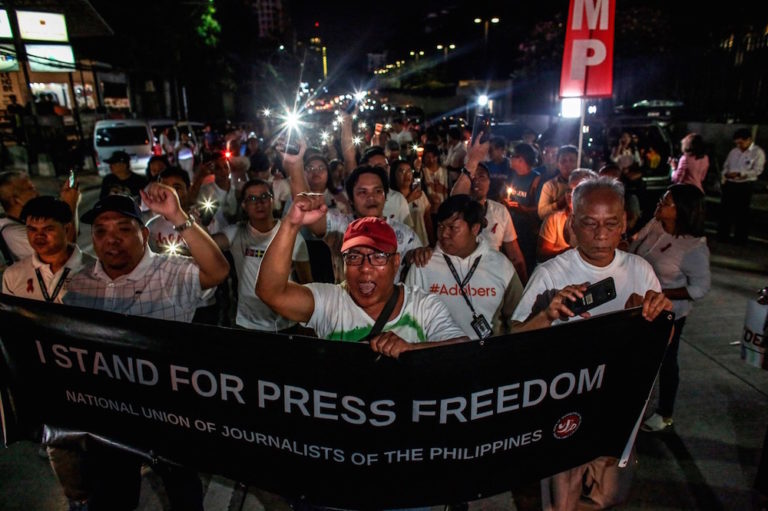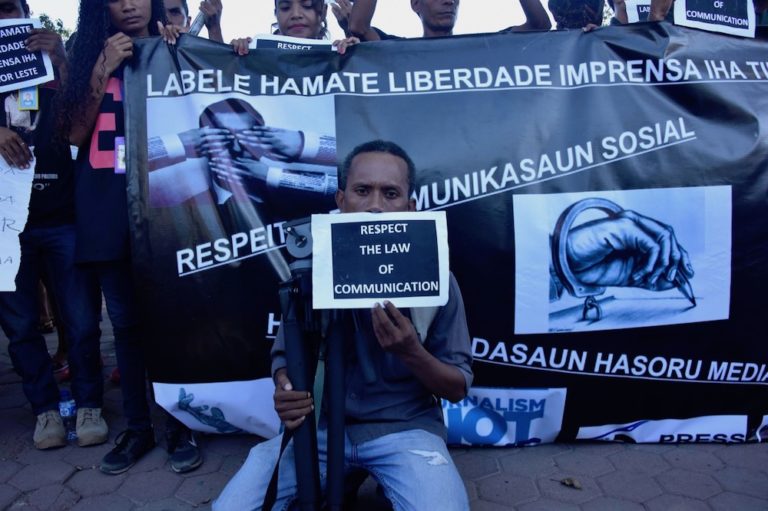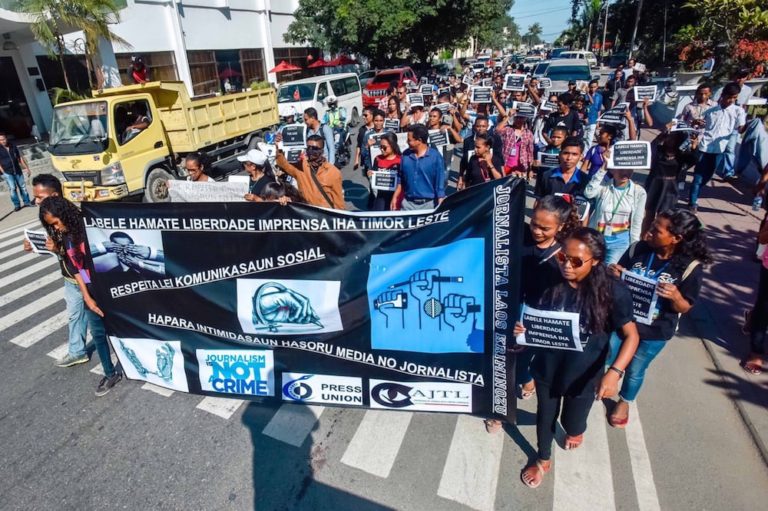(RSF/IFEX) – Reporters Without Borders condemns the action of the police in arresting and beating Agostinho da Costa, a “Timor Post” journalist, on the night of 22 to 23 February 2008 as he was travelling to the location in Kaikoli, near Dili, where his daily is printed in order to help prepare the next issue. […]
(RSF/IFEX) – Reporters Without Borders condemns the action of the police in arresting and beating Agostinho da Costa, a “Timor Post” journalist, on the night of 22 to 23 February 2008 as he was travelling to the location in Kaikoli, near Dili, where his daily is printed in order to help prepare the next issue. He was freed the next day (see previous IFEX alert of 27 February 2008).
The staff of daily newspapers have had to take risks to bring out issues on time since an 8 p.m.-to-6 a.m. curfew was imposed under a state or emergency that was declared after the attempted murders of President José Ramos-Horta and Prime Minister Xanana Gusmao on 11 February. The emergency was extended for another 30 days on 22 February.
Reporter Rory Callinan of “Time” magazine and photographer John Wilson were detained and threatened by Australian members of an international peacekeeping force near Dili in mid-February when they tried to avoid a roadblock set up by the peace-keepers during a sweep for rebel soldiers.
According to their story, published in “The Australian”, they were eventually able to continue on their way but were arrested again for violating the curfew. Other reporters, including “The Australian”‘s correspondent, were blocked at a checkpoint by Australian soldiers.
The Australian photographer Lindsay Moller was meanwhile manhandled by two Portuguese peacekeepers and forced to delete the photos he had taken of an Australian woman of Timorese origin, Angelita Pires, who had been arrested on suspicion of supporting soldiers participating in the uprising.
Prime Minister Gusmao imposed the state of emergency in order to facilitate operations against the rebels. Gusmao was not hurt in the 11 February murder attempts, but the president was seriously injured. Three weeks earlier, on 18 January, Gusmao had threatened to arrest journalists who published “erroneous” information. He referred at the time to recent interviews with rebel leader Alfredo Reinado which, he said, had contributed to national instability.


